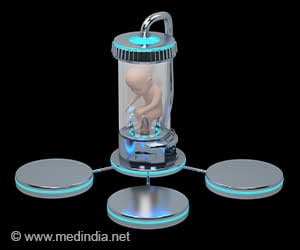
Among 460 patients aged 18 to 70 (median age 59), 321 were randomly assigned to the lenalidomide arm, and 229 to the placebo group. All participants had received prior autologous hematopoietic stem-cell transplantation and had stable (non-progressing) disease. The participants'' assignments and responses to date were unblinded in December 2009 when the primary endpoint of the study (time to disease progression) showed a statistically significant difference between the two study groups. After January 2010, 86 of 128 eligible patients crossed over from the placebo arm to the active arm.
The researchers found that the therapy extended the time to disease progression by 19 months overall, even with the majority of placebo patients without progression crossing over to lenalidomide. The treatment was fairly well-tolerated - particularly as compared to other treatments for multiple myeloma, such as thalidomide. There was more hematologic toxicity, particularly neutropenia, in the lenalidomide group. When the study data was analyzed again in October 2011, at a median follow-up of 34 months, 37% of participants receiving lenalidomide had disease progression or had died, compared to 58% of those in the placebo group.
"These findings fill a gap that existed previously in terms of data on whether maintenance therapy with lenalidomide prolongs the time to disease progression after initial therapy. We now have evidence that it does, in this and the two other lenalidomide studies that are presented in this issue of the Journal," said Dr. McCarthy. "This shows that patients with multiple myeloma now have options for prolonging the response to initial therapy. The next steps will be trying to improve on these responses by adding new agents that may prove even more effective in combination with lenalidomide following transplant."
A benefit in overall survival was also seen in this study. At a median follow-up of 34 months, a total of 15% of patients who received lenalidomide and 23% of the patients receiving placebo had died. "The median overall survival among patients who required therapy before 1996 was approximately 3 years. In the era of new agents and autologous hematopoietic stem-cell transplantation, the median overall survival after transplantation is close to 8 years," Dr. McCarthy and colleagues write in the paper, "Lenalidomide after Stem-Cell Transplantation for Multiple Myeloma."
There was an increase in second primary cancers among the lenalidomide-arm patients. When looking at both study groups, the cumulative incidence of a second primary cancer was higher among patients in the lenalidomide group than among patients in the placebo group, and the cumulative incidence of progressive disease and death were higher among patients in the placebo group than among patients in the lenalidomide group.
Advertisement










